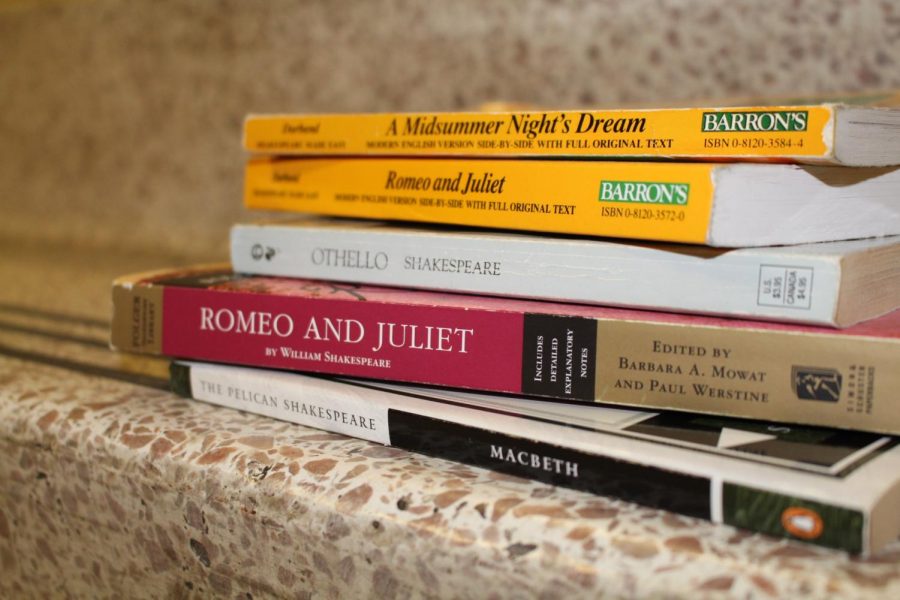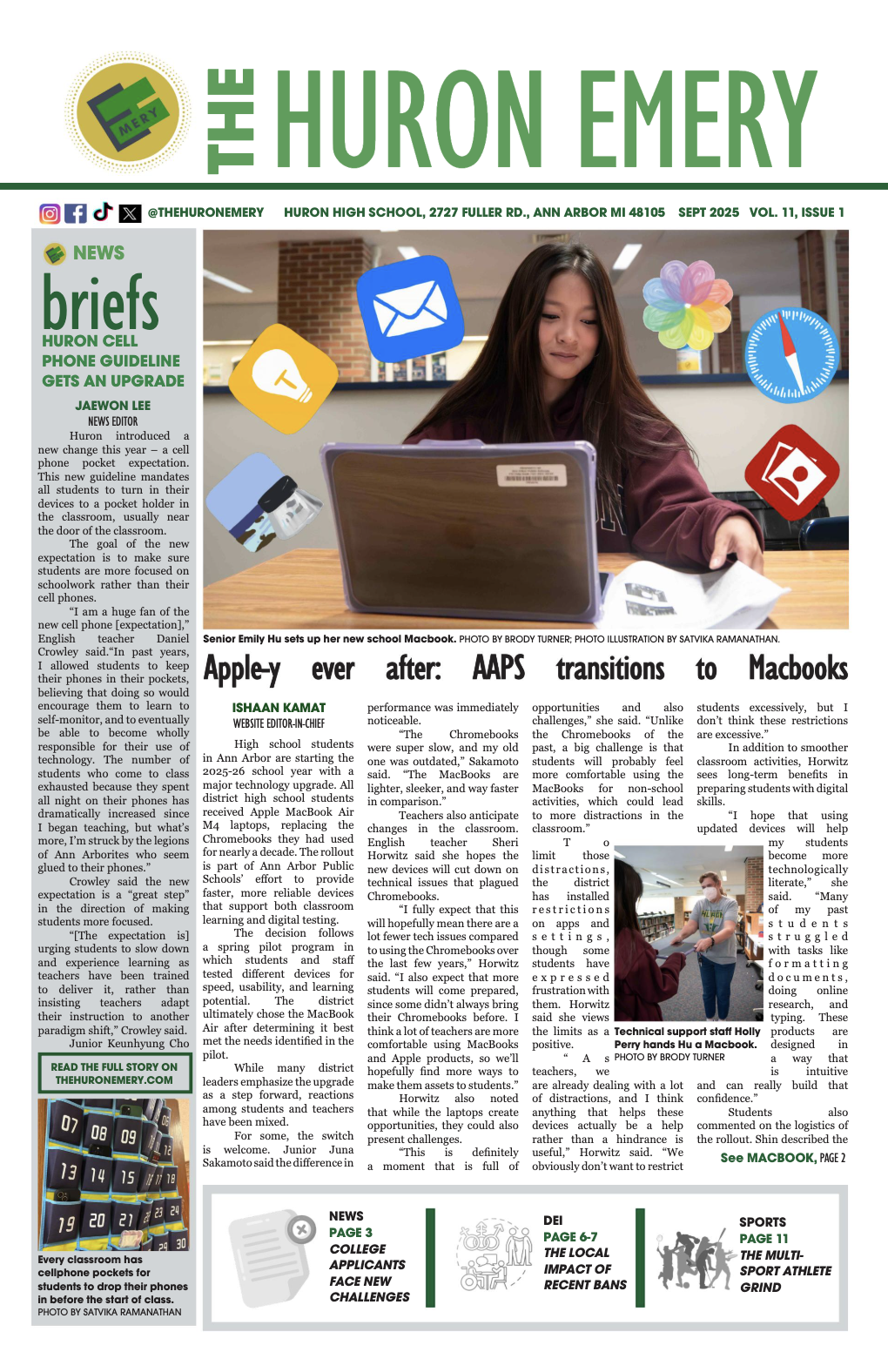Debunking the Oxfordian Claims about Shakespearean Authorship
The debate continues, did Shakespeare really write all the works attributed to him?
October 1, 2021
In 1564, William Shakespeare of Stratford-upon-Avon was born. He would grow up to become indisputably the greatest writer in the English language. But now, suddenly, people are questioning him. Did Shakespeare really write all the works attributed to him? Was there someone else behind all these beautiful words? No, of course not. It’s ridiculous that people would even think to doubt such a well-known and well-respected person.
One of the most suggested people to be the true Shakespeare is Edward De Vere, the 17th Earl of Oxford. Those who support the Earl of Oxford, the so-called “Oxfordians,” claim that De Vere was close enough to court that he could have made references about it, as Shakespeare’s writing often did. They also suggest that De Vere may have been either Queen Elizabeth’s son or lover, and that the queen could have paid him to write all the plays. Are these claims really plausible? A look at the evidence will show that most likely, they are not.
The first piece of evidence that casts doubt on the Oxfordians regards Shakespeare’s relationship with the theater. Shakespeare was known to be very close with the actors and actresses that starred in his plays, and he often wrote plays with specific people in mind. In fact, he would sometimes accidentally write in the actor’s name instead of the character’s name in his scripts, showing his close connection to the people that were in his plays. A nobleman like De Vere would not have wanted, or have been able to be close to the “commoners” that actors were. He would not have had the knowledge to make the mistake of accidentally writing in an actor’s name.
Another point the Oxfordians use is that De Vere used the name “Shakespeare” to hide his real identity. This is unlikely because Shakespeare was a very well-known and well-respected writer. It makes sense, in his time, that he would put his name on his plays, because it was good marketing. In other words, people would recognize his name and want to go see his plays.
Moreover, in the Elizabethan Era, most playwrights did not print their names on the plays that they wrote, mainly because being a playwright was not considered a good career (of course, over time, that has changed). Shakespeare was one of the few people that would have his name on his plays. Why would De Vere or anyone else go through the extra trouble of putting their names on their plays when the default was to use “Anonymous?”
Another problem with the Oxfordian position is that they rely on assumptions. Most of what we know regarding the Shakespeare Authorship Question is based on assumptions. For example, the Oxfordians make a lot of claims in regard to Shakespeare’s education. There is some evidence that Shakespeare did drop out of school to work and provide for his family, but still: why couldn’t a man of humble beginnings grow to accomplish great things? How much did Shakespeare learn when he was in school? The Oxfordians claim “not enough.” How do they know? It is simply irresponsible to presume these ideas.
Lastly, people who do not believe that Shakespeare wrote Shakespeare claim that he was not noble enough to be such a great writer. In fact, it was not until the Victorian Era, a time when there was growing prejudice against the non-noble classes, that Shakespeare’s authorship was even questioned. There still is a lot of prejudice against people who maybe are not privileged enough to complete their education. However, that does not have anything to do with whether or not a person can have a massive impact on the world.
We may never have enough evidence to come to a definitive conclusion about this controversy. However, evidence lies heavily on the side of the man from Stratford. And as for the Oxfordians, they need to account for the fact that De Vere died before many of the later plays were written. Until more evidence is unearthed, the case rests.












Lyle Colombo, PhD • Nov 11, 2022 at 6:14 pm
Miss Fu, Your article is a succinct description of one side of the Shakespeare Authorship Question. Many, many scholars have shown that the name “William Shake-speare” was a pseudonym used by Edward de Vere. De Vere did not put his name on his plays because it was not allowed for noblemen to write publicly for the theater in the Elizabethan court. It was quite common for pseudonyms to be used, and there are numerous accounts of De Vere’s acquaintances who knew that he wrote the plays and poems and that he did so under a pseudonym. Will Shaksper (sic) of Stratford was never acknowledged to have been a writer during his lifetime. He never claimed to have written anything and in fact the only handwriting we have of his are several shaky signatures made by someone who likely was functionally illiterate. Neither of Shaksper’s parents could write, and both of his children were illiterate (all were unable to write their names and signed legal documents with a mark). When he died, no one took note. The dating of the plays is based on Will Shaksper’s life, so the argument that De Vere died too early is circular. You state we may never be able to conclude definitively whether De Vere wrote the plays and poems, but the preface to the Sonnets and the poem To the Reader in the first folio were both encrypted by John Dee to preserve the name of the true author. If you wish to explore this further I point you to the YouTube channel of Alexander Waugh. I hope you will examine the other side of this debate, which has been kept out of proper academic channels because Shakespeare scholars do not want to be confronted with the mounting evidence against Shaksper of Stratford.
Lev • Jan 7, 2022 at 11:58 am
I am a researcher of Shakespearean question from Moscow, published the book `Shakespeare: Faces and Masks` (in Russian). http://www.w-shakespeare.ru/library/shekspir-lica-i-maski.html
Now I have posted on the site translations into English of three of my articles.
The first is `Shakespeare’s Sonnets: The Riddle of Dedication`
https://vixra.org/abs/2102.0107
The second is about `Othello` «On the Hidden Meaning of Shakespeare’s Tragedy `Оthello`»
https://vixra.org/abs/2102.0092
The third `The Alchemy of Images in Ben Jonson’s Comedy “The Alchemist”
https://vixra.org/abs/2111.0091
Maybe you will be interested in.
Tony Minchin • Dec 31, 2021 at 6:05 pm
re Shakespeare authorship, see
https://sirhenryneville.wordpress.com/
Tony Minchin